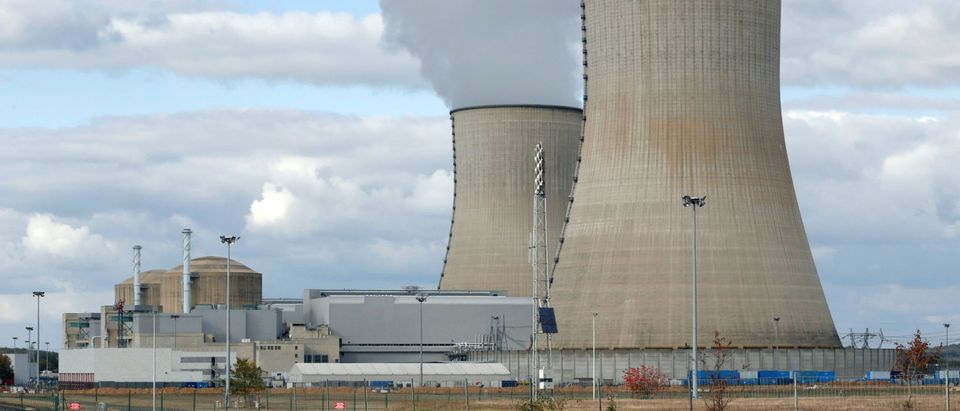A coalition of energy industry trade groups is pushing back against a utility’s pleas to the Department of Energy to use executive authority to save struggling nuclear and coal plants.
The coalition, representing the natural gas, power, renewable energy and energy efficiency industries, conducted a legal analysis of the FirstEnergy’s plea to the DOE and concluded the utility’s case does not meet the standard for “emergency” relief.
On March 29, FirstEnergy asked DOE Secretary Rick Perry to intervene in the energy market served by grid operator PJM Interconnection — an area that covers roughly 65 million people in the Northeast and Midwest. FirstEnergy operates several coal and nuclear plants that feed into PJM’s grid, which are due to shut down prematurely because of economic reasons.
The market conditions causing the plants to fail represent a “threat to energy security and reliability,” FirstEnergy said in a letter to Perry. The utility petitioned the DOE secretary to take action under Section 202(c) of the Federal Power Act and use authority designated for emergency use to alter market rates and ensure the plants’ temporary survival.
In a letter to Perry sent late Monday, the coalition of energy trade groups laid out its case against FirstEnergy’s request.
“FirstEnergy’s claim that an emergency exists rests entirely on the observation that some coal and nuclear plants — most importantly those owned by FirstEnergy — are losing money and are therefore likely to retire in the coming years,” the letter said. “That is not an emergency. The retirements [First Energy cites] will unfold over a period of years and will be carefully planned.”
PJM has not joined FirstEnergy in calling for federal aid. The grid operator contested the company’s claim an energy emergency was imminent, saying the grid was ready to handle the eventual shut down of FirstEnergy’s plants.
FirstEnergy is stretching the authority granted the DOE under the Section 202(c) far beyond the original intent, the energy industries claim.
“The orderly retirement of power plants in PJM will unfold over a period of years and in the context of ample supply of generating capacity. There is no ’emergency,'” the letter states. “FirstEnergy’s petition seeks to stretch Section 202(c) far beyond what its text can support … It does not give the Department authority to set national energy policy or to advantage one type of fuel for electric generation over others.”
FirstEnergy asked for guaranteed relief for four years — far beyond the time frame intended for emergency relief in the Federal Power Act.
“Orders for ’emergency measures’ may last only 15 days before an additional emergency finding is required,” the letter states. “FirstEnergy’s request that certain favored power plants receive rate recovery for four years … would far exceed an authority limited to providing temporary, emergency relief.”
All content created by the Daily Caller News Foundation, an independent and nonpartisan newswire service, is available without charge to any legitimate news publisher that can provide a large audience. All republished articles must include our logo, our reporter’s byline and their DCNF affiliation. For any questions about our guidelines or partnering with us, please contact licensing@dailycallernewsfoundation.org.


